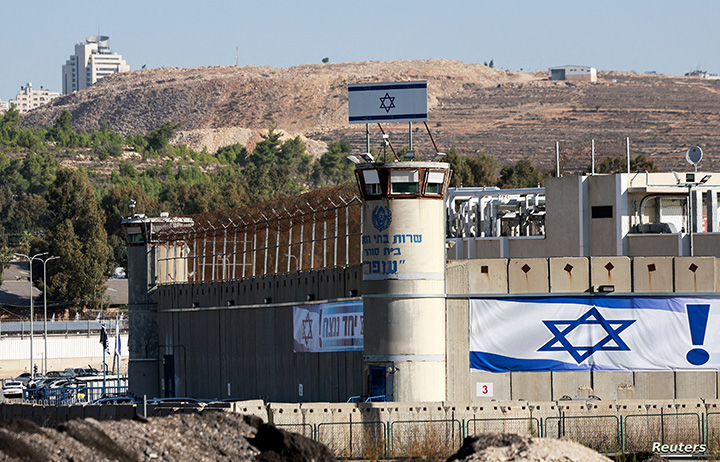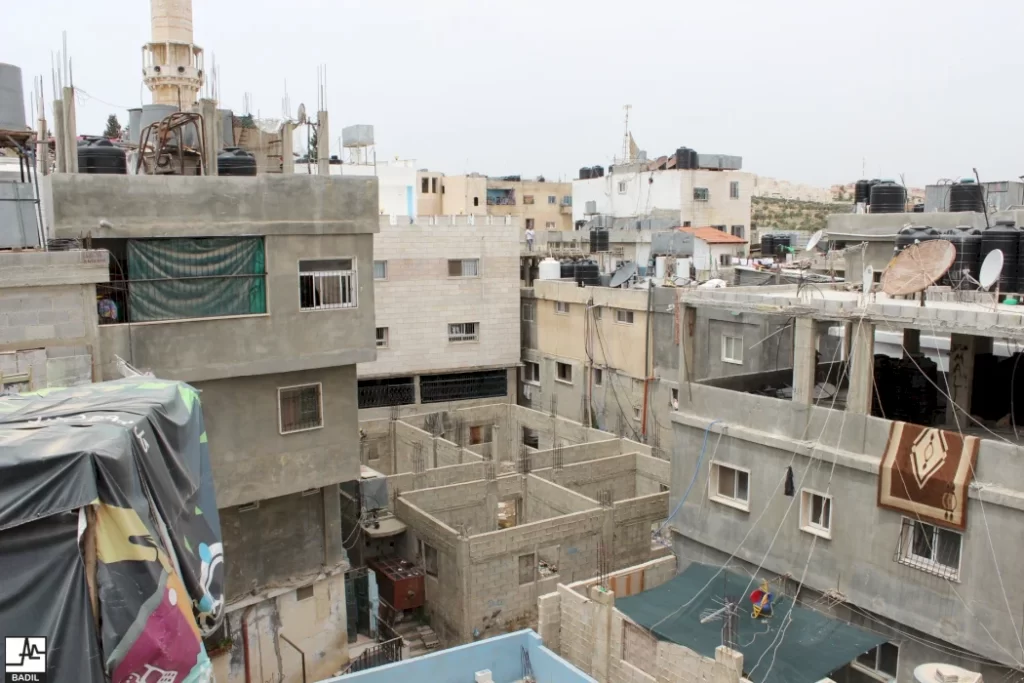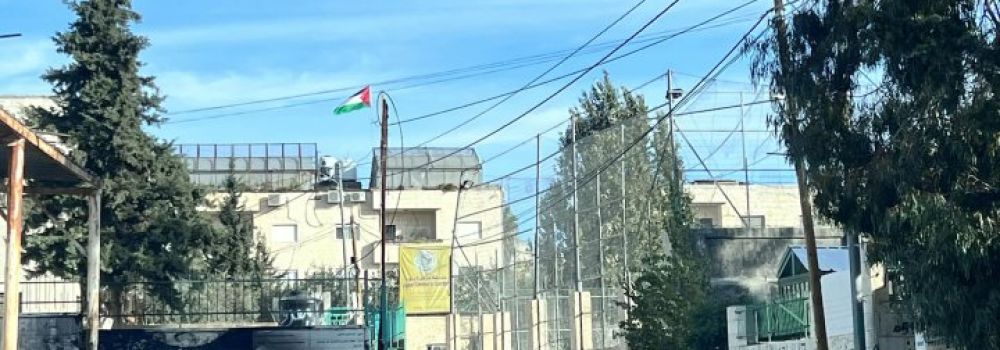Arrests
Over fifty people—men and women—have been arrested from Aida refugee camp since Oct. 7, ranging in age from about 15 to 55. Each arrest raid comes with a threat to the safety of all in the camp, as the killing of Mohammad Aziyya demonstrates. Throughout Israel’s occupation those being arrested are often beaten upon arrest, but arrest raids this fall have been especially vicious, often involving many heavily armed soldiers beating one unarmed person. Occupation soldiers also damage homes and property and use tear gas in their invasions. After being arrested, families often do not hear about their relative’s location or health status for days. Conditions in prison are very dire, with severe overcrowding, food shortages, degrading punishments, and other abuse.
On December 3, Mohammad Refat Abu Srur, 23, was arrested the night he was released from the hospital after having been shot and injured badly in the leg by Israeli occupying forces. Israeli soldiers shot him in a protest in Aida camp against Israeli assaults on Palestinian hospitals in Gaza. He is in immediate need of health care for his leg injury.

The over fifty arrests during the war have more than doubled the number of prisoners from Aida. Today, 83 people from Aida refugee camp are in prison, with the most senior of them being Nasser Abu Srour and Mahmoud Abu Srour, who were imprisoned in 1993. In a small bright spot, we are proud that Nasser Abu Srour has written a newly translated memoir that tells a powerful Palestinian story of resistance in and out of prison.
Attacks on Lajee Center and Palestinian Identity
Lajee Center has sustained physical damage due to invasions of Israel’s occupying forces. On November 25, occupying forces threw over 100 tear gas canisters into Lajee’s football field, causing permanent damage by burning its surface. Israeli forces have also invaded Lajee Center twice to steal the Palestinian flag flying from the roof, breaking internal and external doors. Each time, Lajee Center has been determined to raise the flag once again. As the president of the board of directors of Lajee Center Khaled Al-Azraq commented, “Lajee took a position of challenging the Israeli occupation by raising the flag again and again. Not all organizations would take such a step.” Seeing the flag flying high above the camp, so close to the Israeli military base, has been a source of pride for many in Aida, and has inspired others to fly the Palestinian flag.
Lajee Center’s determination is especially significant in these days of Israeli erasure and violence. Throughout the camp, soldiers have torn down tributes to Palestinian martyrs and prisoners. This symbolic violence has deep political significance, as Mohammad Al-Azza explained: “Israel is targeting Palestinian symbols in Aida Camp and beyond. Israel seeks to eliminate the identity of Palestinians with such actions. Similar tactics have been around for a long time, but they are being used more widely and in new ways today. Israel is trying to target symbols of Palestinian identity in our own communities. At the same time, Israel is trying to transmit an image of their army’s own victory.” Still, the Palestinian flag flies above Lajee, waving proudly in the winter wind.
Other Challenges
Palestinians in Aida and beyond are under tremendous economic pressure. Those who labor inside the 1948 occupied lands have not been working for almost four months, and the Palestinian Authority has only paid one half month of salaries since October. Businesses in Bethlehem are very depressed due to the lack of tourism. Lajee Center has responded as well as it can. It continues to pay salaries of all of its 17 full-time and 14 part-time staff members, who are able to support their families. Through Lajee’s partnership with Yafa Center, six full time staff members are supported in Nablus. It has also reduced fees when necessary (though most Lajee activities and services are free). As the president of the Board of Directors, Khaled Al-Azraq, said, “Because people are in a moment of serious need, we have waived school fees for many in the kindergarten.”



